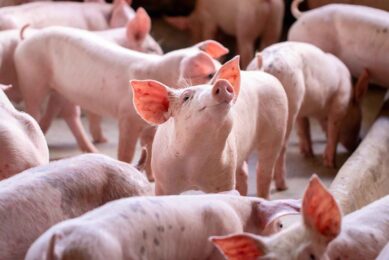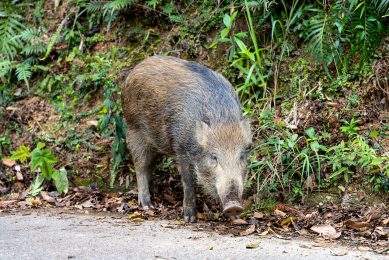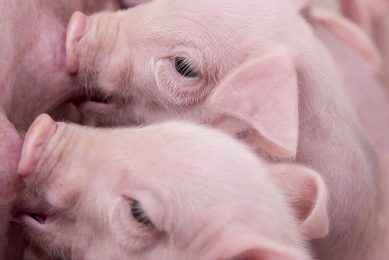Inovio Pharmaceuticals: DNA Vaccine for FMD study
Inovio Pharmaceuticals, Inc. announced that it has achieved compelling immune responses in a study of its multi-subtype DNA vaccine for foot-and-mouth (FMD) disease administered by its proprietary vaccine delivery technology in sheep, the second large animal in which this vaccine was evaluated. Strong protective neutralizing antibodies were also observed in pigs vaccinated with the same vaccine.
These results were presented by Dr. Niranjan Y. Sardesai, Inovio Sr. VP of Research and Development, at the Biochemical and Molecular Engineering XVII Conference in Seattle in a talk titled “Engineering Effective Consensus DNA Vaccines.” Today’s FMD vaccines based on killed/inactivated viruses can actually cause FMD infection, so are only used regionally after an outbreak rather than for broad preemptive vaccination. Inovio’s synthetic DNA vaccine cannot cause the disease, providing a safe approach to potentially protect against FMD and reduce its serious impact on global food supply and commerce.
The FMD virus is one of the most infectious agents causing significant disease in farm animals including cattle, swine, sheep and goats. Once an area is exposed to FMD, livestock & dairy exports are ceased and herds are culled. For example, in a major FMD outbreak in the UK in 2001, more than 4 million animals were slaughtered, resulting in more than $10 billion (USD) in economic losses. In a current FMD epidemic in South Korea, more than 3.3 million animals, mostly swine, have been culled in an attempt to keep the disease from spreading.
Spread rapidly
Because FMD can spread rapidly and beyond regional boundaries there is a need to develop vaccines that can simultaneously target different regional serotypes (subtypes) of FMD in a single vaccine. Inovio’s SynCon technology enables rapid development of vaccines that can cover multiple subtypes simultaneously with a single formulation. The company and its academic collaborators have generated and successfully tested SynCon DNA vaccine constructs targeting four of the seven main FMD virus subtypes.
FMD is highly infectious. Furthermore, due to the fear of inadvertent spread to farm animals, research with the live virus to test vaccine efficacy is heavily restricted to only a few government laboratories in the US. The investigators therefore developed a new proprietary neutralization assay (using a mock virus unrelated to FMD to assess the ability of the vaccine-induced antibodies to neutralize virus infection). Inovio previously reported the induction of strong cellular and antibody responses in vaccinated pigs after a single vaccination. In a follow-on investigation of the immune responses with the novel neutralization assay against the Asia strain, the vaccinated animals developed neutralizing antibody (NAb) titers averaging 90 after a single vaccination and increasing in magnitude to 191 after two vaccinations. For comparison, commercially available attenuated/killed FMD virus vaccines are able to protect swine with an NAb titer of 32-40. These results are the first report of a DNA vaccine producing high titers of neutralizing antibodies against FMD.
In the second large-animal study, sheep were vaccinated three times at 0, 5, and 10 weeks with a combination vaccine targeting either four subtypes (O, A, C, Asia), three subtypes (O, A, Asia), or a single subtype (Asia). The study investigators observed in the vaccinated animals high levels of seroconversion (production of antibodies specific to a particular antigen) and antibody titers (the actual level of antibody production; in this case, ranging from 1000 – 100,000) to all the vaccine subtypes after only one or two vaccinations. Importantly, the multi-subtype DNA vaccines targeting three or four subtypes simultaneously were able to induce equally strong levels of antibody titers compared to the single-subtype vaccines. Strong T-cell responses (cumulatively > 1,500 SFU/million PBMC), which would potentially play a role in treating the disease, were also noted against the four different subtype antigens. Speaking at the meeting, Dr. Sardesai noted, “Encouraged by these results with four subtypes, we are now expanding the coverage of our vaccine to include the three additional key circulating subtypes – SAT 1, 2, 3 – and will initiate further large animal studies to assess breadth of protection.”
Dr. J. Joseph Kim, Inovio’s president and CEO, said: “We are pleased to demonstrate these robust DNA vaccine immune responses in a second globally-important farm animal impacted by foot-and-mouth disease. FMD pandemics are a worldwide threat to food supply and society, and the limitations of today’s FMD vaccines means they are not able to facilitate adequate protection. Inovio’s FMD vaccine program could provide a solution to this menacing threat to our world’s food supply. We look forward to further developing this important vaccine.”











